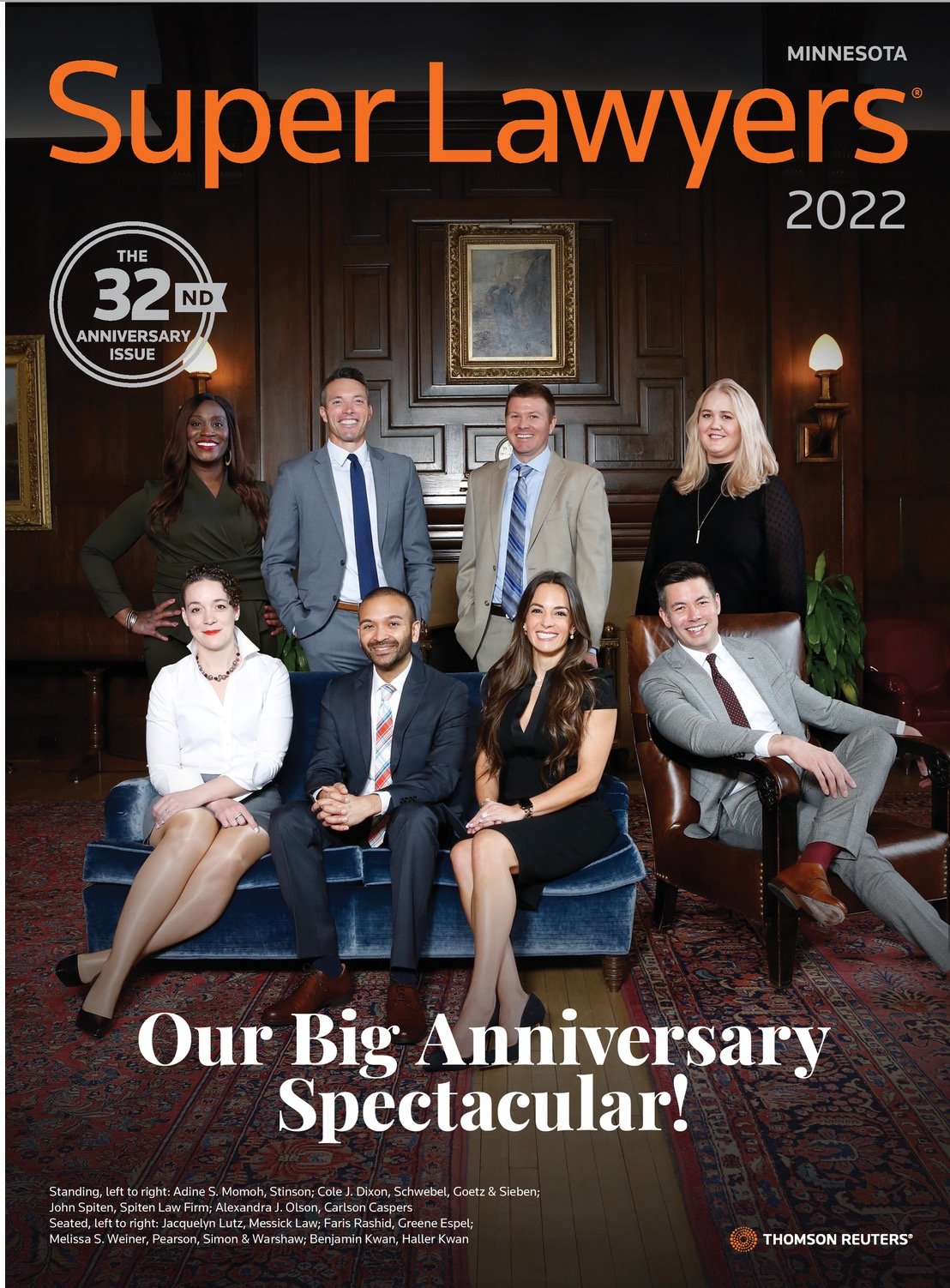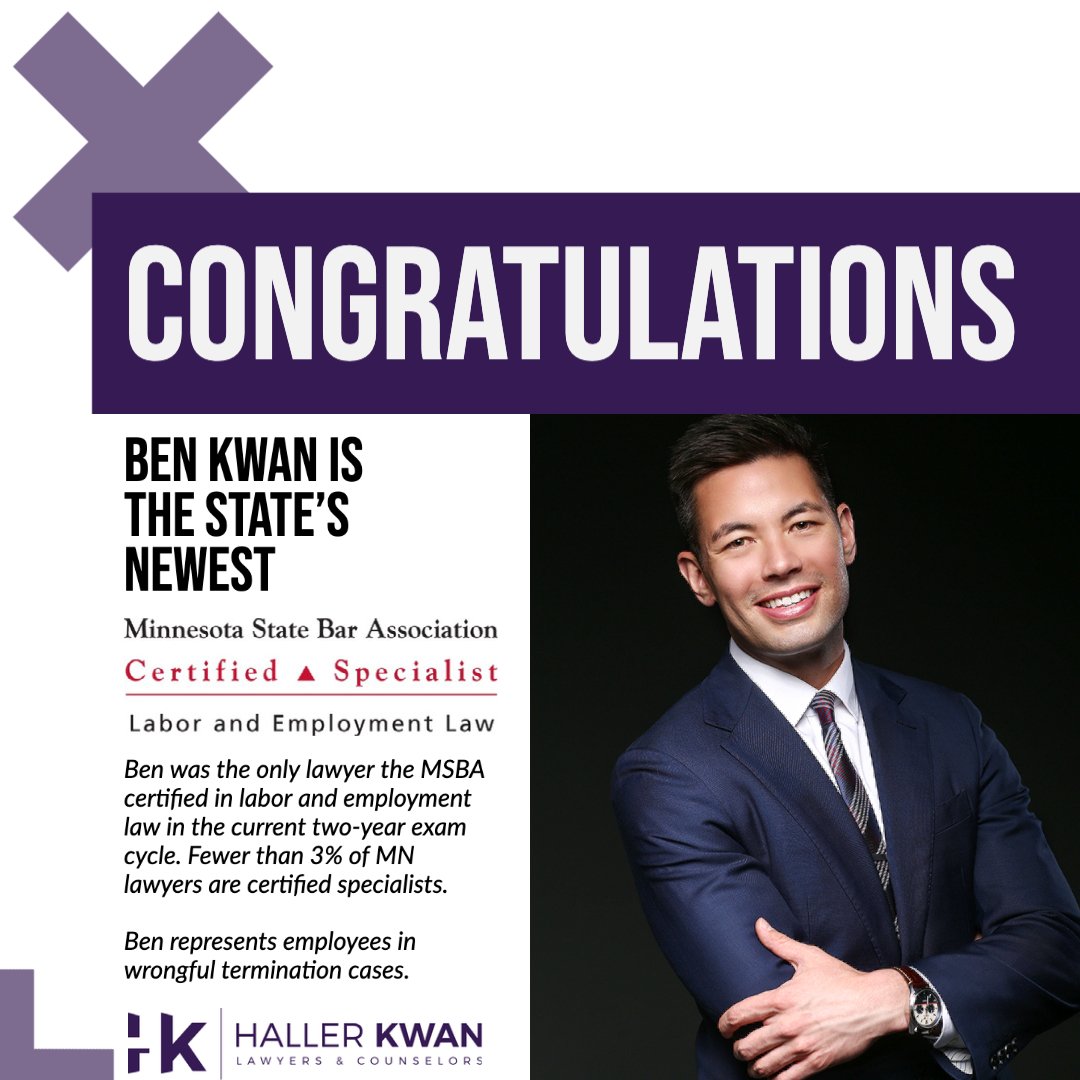At Haller Kwan LLP, we pride ourselves on finding innovative legal solutions to complex employment issues. Today, we want to share a case study that demonstrates our commitment to protecting LGBTQ rights in the face of religious exemptions.
The Situation
Our client, a highly qualified college coach, was recruited by a Christian college in Minnesota. The college actively pursued her, offering her a position and encouraging her to relocate from a western state. Our client, who is a married lesbian, was initially assured that her sexual orientation would not be an issue.
However, upon arriving in Minnesota to start her new job, our client found the college's attitude had dramatically shifted. The institution suddenly rescinded the job offer, leaving our client stranded in a new state without employment.
The Challenge
This case presented a unique challenge. While the Minnesota Human Rights Act prohibits discrimination based on sexual orientation, religious institutions often enjoy exemptions from such laws. This exemption could have made it difficult to pursue a traditional discrimination claim.
Our Approach
Faced with this obstacle, we had to think creatively. We focused on a lesser-known Minnesota statute, Minn. Stat. § 181.64, which prohibits fraud in inducing workers to move to the state under false pretenses. Our strategy included:
Documenting the recruitment process and promises made to our client
Highlighting the sudden change in the college's stance upon our client's arrival and revelation she was married
Emphasizing the financial and emotional toll on our client due to the relocation
Legal Principles
Our case rested on several key legal principles:
Fraudulent Inducement (Minn. Stat. § 181.64): This statute makes it unlawful for an employer to induce someone to move to Minnesota for work through knowingly false representations.
Common Law Fraudulent Misrepresentation: We argued that the college made false representations about the job offer and its policies regarding LGBTQ employees.
Promissory Estoppel: We contended that our client reasonably relied on the college's promise of employment to her detriment.
Minnesota Human Rights Act: While challenging due to religious exemptions, we included this to address the underlying discriminatory behavior.
The Outcome
Through skilled negotiation and our readiness to litigate, we secured a favorable settlement for our client. The settlement included:
Substantial financial compensation
Payment of all mediation fees by the college
A clean break that allowed our client to move forward with her career
The Takeaway
This case demonstrates that even when faced with seemingly insurmountable legal obstacles, creative thinking and a deep understanding of state-specific laws can lead to positive outcomes. It also serves as a reminder that religious exemptions do not give institutions carte blanche to discriminate or make false promises to potential employees.
At Haller Kwan LLP, we remain committed to fighting for the rights of all workers, regardless of their sexual orientation or gender identity. If you're facing a similar situation, remember: there may be legal avenues available that you haven't considered. If you or someone you know needs help, see if one of our initial consultations suits the need and get in touch!
Note: This case study is a composite of a real case handled by Haller Kwan LLP that's anonymized to maintain confidentiality and for brevity. This is in no way a guarantee or forecast of possible future results. Each case is unique with its own opportunities and risks to weigh.












